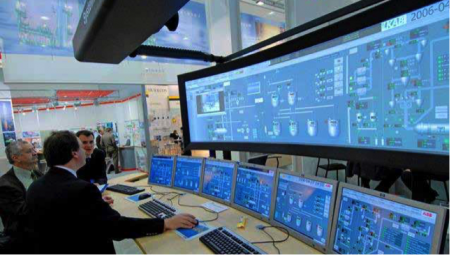The Challenge
ABB was selected as the main automation contractor for the world’s first operation focused on converting gas from coal seams into liquefied natural gas. This supports ABB’s environmental goals as natural gas provides about the same amount of energy as coal with over 40 percent lower carbon dioxide emissions when burnt.
One of the biggest technical challenges ABB faced with this project was automating the collection of well data. The project called for between 1,000 and 1,500 well sites to come online in 2014, and beyond 6,000 by 2030, over an area of more than 4,500 km2. Each of these wells have between 50 and 70 data points being scanned on a 30-second cycle time.
With several new wells being introduced every day, ABB needed to be able to bring them on and off line in a highly streamlined and efficient manner; furthermore, the method of configuring them needed to be simple, fast, and very reliable. It also needed to be able to reliably retrieve vast amounts of data from distant locations. All this meant that the automation of data collection was a huge undertaking, since the project infrastructure was immense and constantly in flux.
 To handle these requirements, ABB needed an automated communications platform that was highly reliable and that could easily scale and communicate massive amounts of data back for visualization and long-term storage in an enterprise historian.
To handle these requirements, ABB needed an automated communications platform that was highly reliable and that could easily scale and communicate massive amounts of data back for visualization and long-term storage in an enterprise historian.
The Solution
ABB selected Kepware’s KEPServerEX® as the best choice to handle the high demands of the groundbreaking project. With over 150 drivers and a single, consistent interface, KEPServerEX provides ABB with all the connectivity tools it requires in an easy-to-use package. In conjunction with ABB’s flagship 800xA Integrated Control and Safety System (ICSS), KEPServerEX allows ABB to add multiple OPC drivers within a single communications platform without worrying about learning new communications protocols or spending time understanding new applications. Of particular value to ABB was the Modbus TCP/IP Ethernet Driver, which provides data exchange between OPC clients and Modbus protocol compliant controllers.